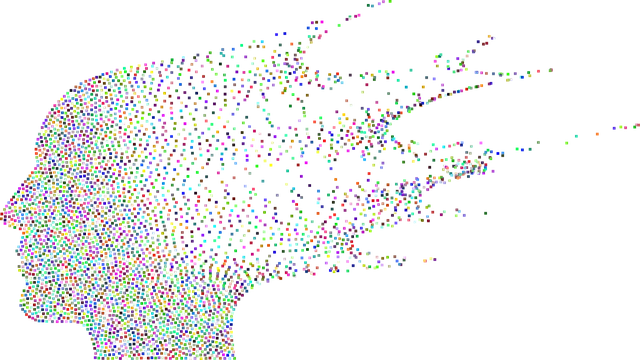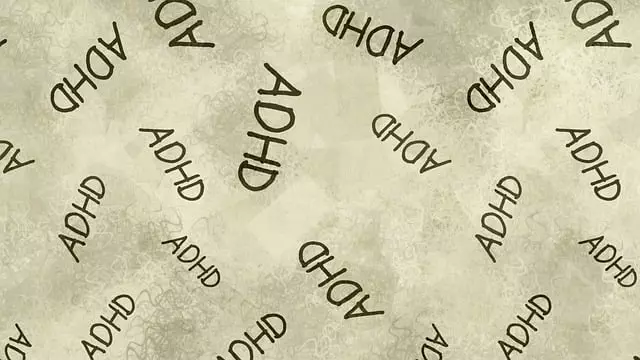The Golden Kaiser mental health programs tackle high misdiagnosis rates (up to 30%) through innovative initiatives. Their approach combines public awareness campaigns, Mind Over Matter principles in therapy, and comprehensive holistic assessments. They utilize advanced technologies like AI-assisted diagnostics and cutting-edge algorithms, along with tailored interventions and cultural competency training for providers. The patient-centered model focuses on education, connection, and self-advocacy, leveraging community outreach and mental wellness podcasts to dispel myths. Continuous improvement through data tracking ensures effective care tailored to individual needs, resulting in more accurate diagnoses and improved patient outcomes.
Mental illness diagnosis accuracy is a critical aspect of patient care. This article delves into efforts aimed at enhancing diagnostic precision, exploring key strategies such as the Golden Kaiser Approach—integrating comprehensive assessment programs—and innovative techniques like advanced diagnostic tools and professional training. We also discuss patient-centered care approaches that empower individuals through education and support networks, along with continuous improvement methodologies based on monitoring and research. By understanding these initiatives, we can foster better mental health outcomes.
- Understanding the Challenges: Uncovering Misdiagnosis Rates in Mental Health
- The Golden Kaiser Approach: Integrating Comprehensive Programs for Accurate Assessment
- Innovative Techniques: Enhancing Diagnostic Tools and Training for Professionals
- Patient-Centered Care: Empowering Individuals Through Education and Support Networks
- Continuous Improvement: Monitoring, Research, and Adapting for Better Mental Health Diagnosis Accuracy
Understanding the Challenges: Uncovering Misdiagnosis Rates in Mental Health

Mental health professionals often face a complex challenge when it comes to accurate diagnosis, particularly in an era where emotional regulation and mental well-being are increasingly recognized as crucial aspects of overall health. Studies have shown that misdiagnosis rates in mental health can be alarmingly high, with some research indicating that up to 30% of initial diagnoses are incorrect. This is especially concerning considering the potential for inappropriate treatments or delays in accessing proper care.
The Golden Kaiser mental health programs aim to address these challenges by focusing on enhancing diagnostic accuracy through various initiatives. One such approach involves public awareness campaigns development, which educate both patients and healthcare providers about the nuances of mental illness. By promoting understanding and knowledge, these campaigns strive to reduce stigma and encourage earlier seeking of help. Additionally, integrating Mind Over Matter principles into therapy sessions has shown promise in improving diagnosis reliability, as it empowers individuals to take an active role in their emotional recovery.
The Golden Kaiser Approach: Integrating Comprehensive Programs for Accurate Assessment

The Golden Kaiser Approach emphasizes a holistic view of mental health assessment by integrating comprehensive programs tailored to address various aspects of an individual’s well-being. This methodology goes beyond traditional diagnostic tools by incorporating evidence-based practices such as Stress Management Workshops, Trauma Support Services, and Depression Prevention initiatives. By combining these targeted interventions with thorough psychological evaluations, healthcare professionals can gain a more nuanced understanding of patients’ mental health conditions.
This approach ensures that the assessment process is not just comprehensive but also patient-centric, catering to the unique needs and experiences of each individual. The Golden Kaiser model promotes accurate diagnoses by fostering an environment where mental health professionals can delve deeper into the patient’s history, behaviors, and emotional responses, ultimately leading to more effective treatment plans.
Innovative Techniques: Enhancing Diagnostic Tools and Training for Professionals

Mental health professionals are constantly striving to improve diagnosis accuracy, and innovative techniques are at the forefront of this effort. Advanced tools and technologies, such as AI-assisted diagnostic platforms, offer promising avenues for enhancing detection rates. These digital solutions can analyze vast amounts of patient data, including medical history, symptoms, and behavioral patterns, providing more objective and precise assessments. For instance, Golden Kaiser Mental Health Programs have integrated cutting-edge algorithms to support healthcare providers in making informed decisions.
Additionally, comprehensive training programs play a pivotal role. The Healthcare Provider Cultural Competency Training focuses on educating professionals about diverse cultural perspectives and their impact on mental health expressions. Equally important is the Risk Assessment for Mental Health Professionals, which equips them with strategies to identify potential risks and early warning signs in various settings. These initiatives aim to boost confidence among healthcare providers, ensuring they feel equipped to handle complex cases accurately and effectively.
Patient-Centered Care: Empowering Individuals Through Education and Support Networks

Patient-Centered Care is a transformative approach that places individuals at the heart of their mental health journey. By empowering patients with education and connecting them to supportive networks, this method enhances the accuracy and effectiveness of mental illness diagnoses. Golden Kaiser Mental Health Programs have been at the forefront of this revolutionary care model, offering comprehensive resources tailored to diverse needs. These programs prioritize patient education, ensuring individuals understand their conditions and available treatment options. This knowledge equips them to actively participate in their care plans, fostering a sense of ownership and self-advocacy.
Furthermore, supportive networks play a pivotal role in improving diagnosis accuracy. Community outreach programs and mental wellness podcast series production have been effective tools to raise public awareness campaigns development. These initiatives not only dispel myths surrounding mental health but also encourage open conversations about personal struggles. Through these platforms, individuals find solace and guidance, feeling less isolated in their battles. By integrating patient-centered care principles, Golden Kaiser’s efforts contribute to a more nuanced understanding of mental illness, leading to improved diagnosis accuracy and enhanced patient outcomes.
Continuous Improvement: Monitoring, Research, and Adapting for Better Mental Health Diagnosis Accuracy

In the ever-evolving landscape of mental health care, continuous improvement is paramount to enhancing diagnosis accuracy. Golden Kaiser mental health programs exemplify this commitment through robust monitoring systems that track patient outcomes and treatment responses over time. This data-driven approach allows for precise adjustments in diagnostic criteria and therapeutic interventions, ensuring the most effective care for every individual.
Research plays a pivotal role in this process, as it enables professionals to stay abreast of the latest findings and evidence-based practices. By integrating these insights into their programs, Golden Kaiser fosters a dynamic environment that promotes coping skills development and inner strength building. Encouraging patients to adopt self-care routine development for better mental health further strengthens the holistic approach, underpinning the relentless pursuit of accurate diagnosis and effective treatment.
Mental illness diagnosis accuracy has long been a complex challenge in healthcare. However, through innovative techniques, patient-centered care, and continuous improvement efforts like the Golden Kaiser mental health programs, we can significantly enhance assessment methods and support individuals receiving timely, accurate diagnoses. By integrating comprehensive programs, educating patients, and adapting research findings, we move closer to ensuring that those seeking help receive the correct treatment from the start.






